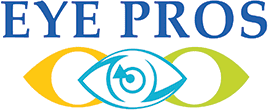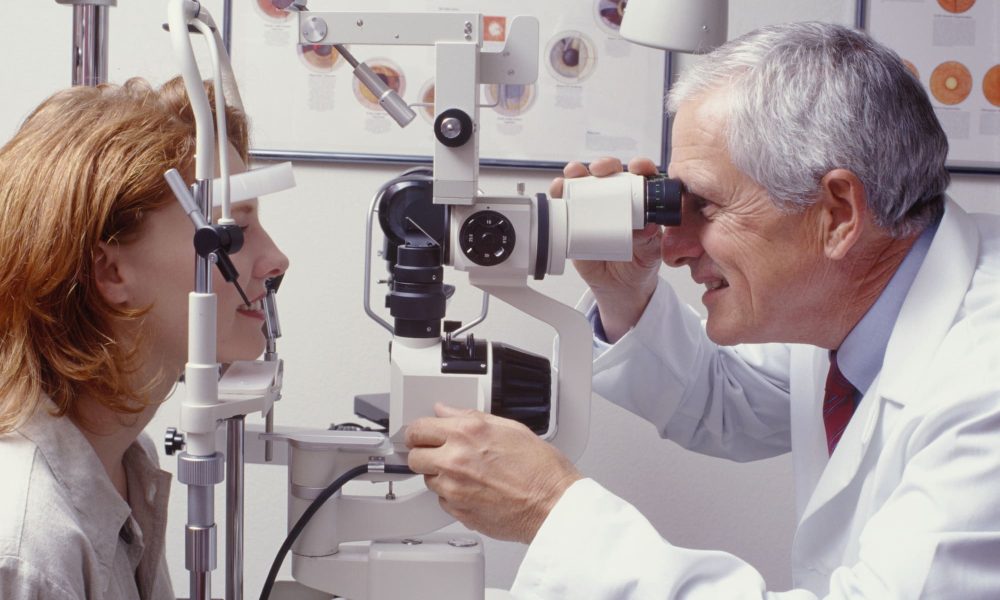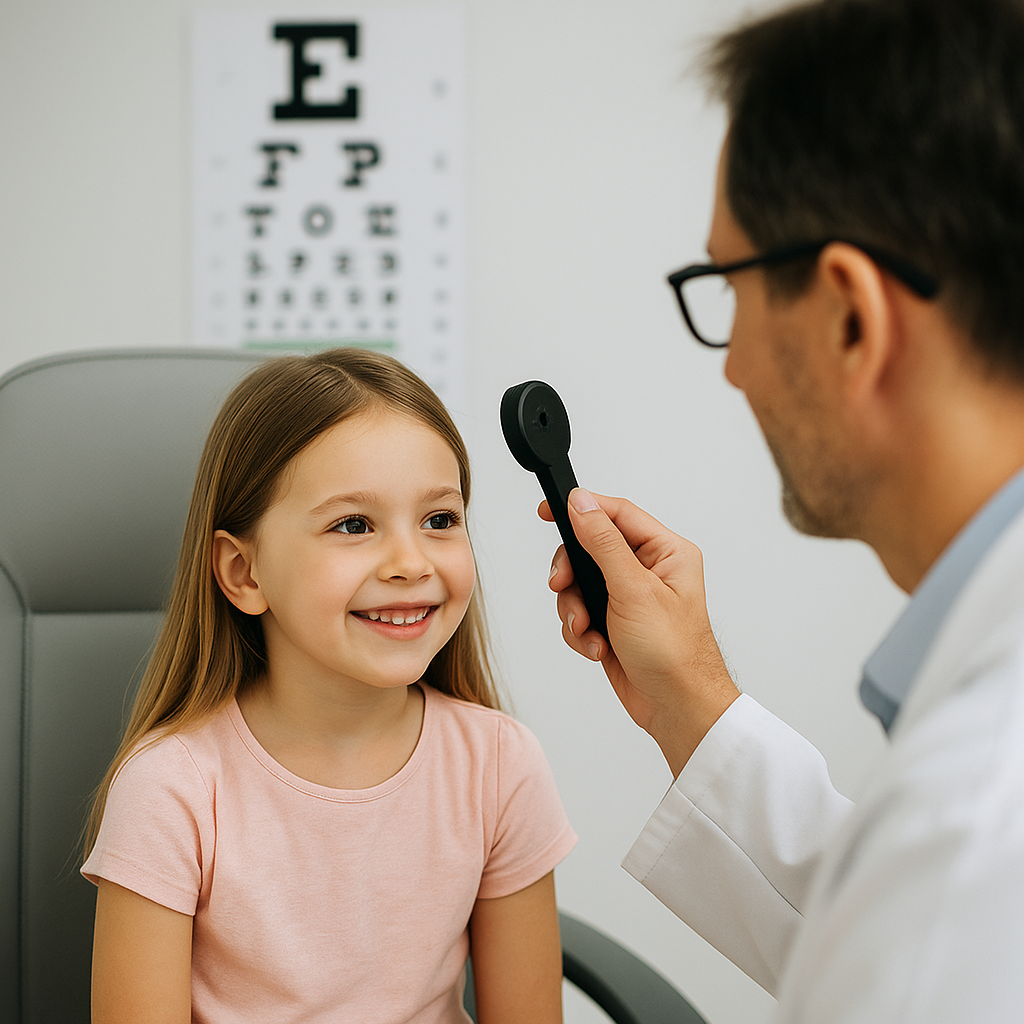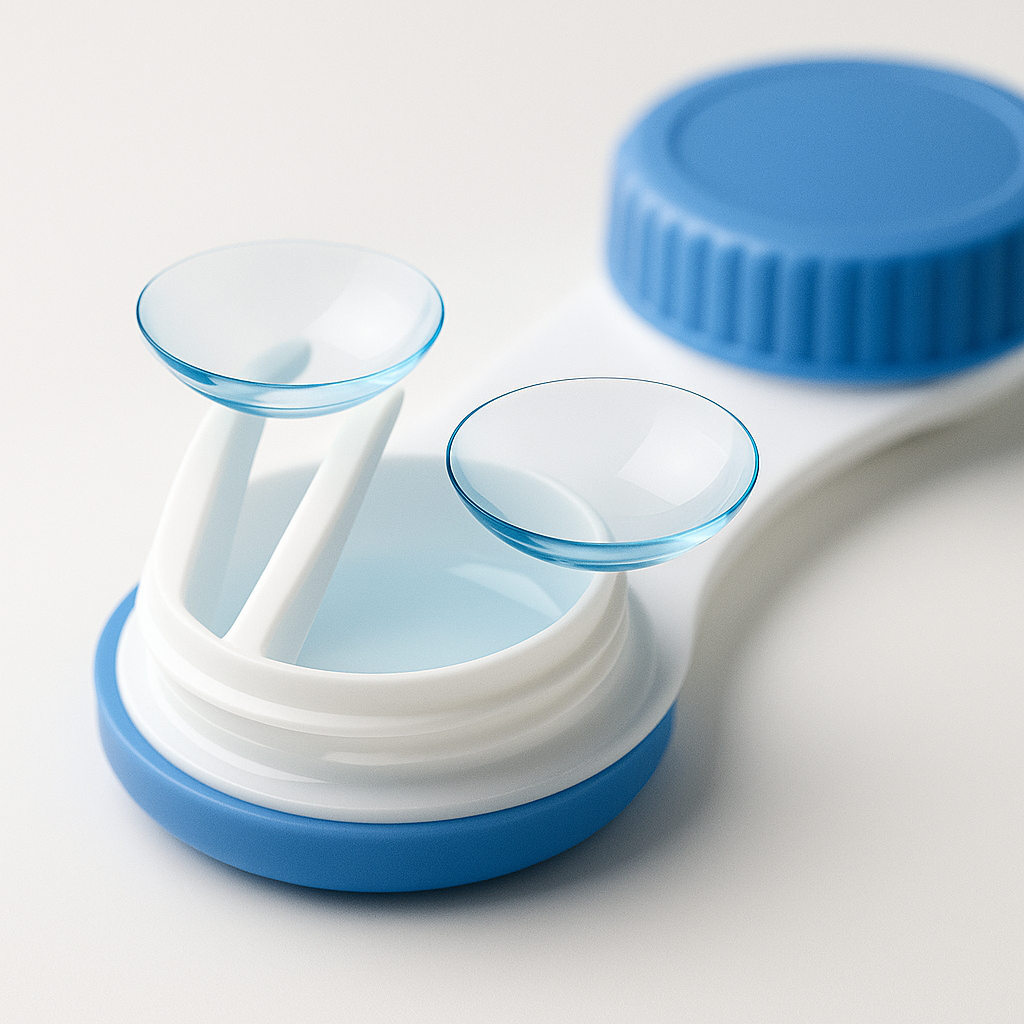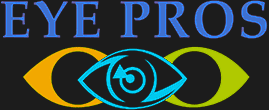Ah, the dreaded eye exam. The idea of some stranger poking around your sensitive eyeballs is too much for some people to handle. And who wants to stumble around with impaired, dilated eyes all afternoon?
We’ll tell you who. People who don’t want to go blind, have a heart attack or die of leukemia when it can easily be prevented. That’s who.
There’s a lot more doctors look for during an eye examination than whether or not you need glasses. Regularly-scheduled eye exams are important for your overall health.
Below are the 5 biggest reasons to get an eye exam, even if your vision seems fine. Check them out and then call your eye doctor to make an appointment.
1. It Helps Doctors Detect Non-Eye-Related Health Problems
Most likely, your main objection is that you don’t need an eye exam or any other exam. Your eyesight is perfect, your hearing is perfect, everything seems fine. You feel as healthy as a horse.
Unfortunately, that probably means you haven’t been to the doctor in years. And that’s a very big problem.
If you never go to the doctor, how will you know you’re truly healthy? You may be developing high blood pressure or diabetes without even realizing it.
The key to surviving many serious health conditions is early detection. By the time you start noticing symptoms and finally go to the doctor, there may be complications that are difficult or impossible to fix.
Fortunately, many serious health problems can be detected in the early stages through standard ophthalmic tests (eye exams). These detectable health problems include:
- high blood pressure
- high cholesterol
- diabetes
- lupus
- leukemia
Through regular eye exams, doctors often catch these problems while they’re still treatable. Scheduling your regular eye exam can save your life!
2. It Helps Doctors Detect Eye Problems Before You Do
You can see everything without any trouble, whether it’s up close or far away. But being able to see clearly doesn’t mean you’re in the clear. Even if you score 20/20 on your vision test, you may still have the early onset of eye problems.
Often times, you won’t notice any symptoms while vision problems are still in the early stages. But through an eye exam, eye doctors can still detect these problems that vision tests miss.
But vision problems aren’t the only eye problems to worry about. There are worse ones, like cataracts and glaucoma. Aside from noticing symptoms, eye exams are the only way to notice these.
And as we said above, the key to fixing any health problem is early detection. By the time you’re showing symptoms, the problem may be much more difficult to fix.
The good news is, most eye problems are very correctable in the early stages. So schedule eye exams regularly.
3. It Helps Doctors Spot Progression of Eye Problems
And if you do get an eye exam only to find that nothing is wrong, don’t think you’ve wasted your time. A clean bill of health at an eye exam is just as important as detection of a problem.
The results of every eye exam you get will be used at your next eye exam as a reference point. If and when you do develop eye problems later in life, this will help your doctor will know approximately or exactly when the problem developed. This knowledge will be a huge help in treating the problem more quickly and effectively.
4. Your Vision Will Get Worse With Age
It’s a sad fact that everything in our bodies deteriorates over time. Your eyes may not be the first to go and may even be the last.
Still, the fact remains that your chances of developing eye problems increase as you get older. This is especially true of the worse problems, like cataracts and glaucoma.
Also, these problems may come on so gradually that you don’t notice them until the more advanced stages. Avoid this unnecessary trouble by scheduling regular eye exams according to the chart further down on this list.
5. Vision Seems to be Getting Worse Regardless
In recent years, there has been a significant increase in myopia (nearsightedness), especially among American children. In 2004, it was found that the occurrence of nearsightedness had nearly doubled in 30 years.
Many suggest this may be due to the general child population’s increased use of electronic devices. Though, without enough clinical data, the true cause remains unknown.
But there is clinical data to support the fact that myopia increases the chances of developing worse problems, like cataracts, glaucoma and retinal detachment. Those with myopia are shown to have an increased chance of developing these problems and with faster rates of progression.
But the most important point to make is that myopia is highly correctible if detected early. While vision tests are helpful, a full, comprehensive eye exam is essential for early detection. This is especially important for children.
How Often Should You Schedule an Eye Exam?
Now that you know how important eye exams are, look here to see how often you should be scheduling one.
Children under 3 will have their eyes examined at regular appointments with their pediatrician. At age 3, a willing child can undergo an eye exam.
Children age 3 to adulthood have no estimated, suggested frequency of eye exams. However, with the recent increase of myopia, it would definitely be responsible to get your child in for an eye exam. This is also a good way to get them used to eye exams at a young age so they don’t fear them later on.
For adults:
- Age 20 to 39: every 5 years
- Age 40 to 54: every 2 to 4 years
- Age 55 to 64: every 1 to 3 years
- Age 65 and up: every 1 to 2 years
If you’re overdue, definitely make your appointment today. But as we’ve shown you before, there are very good reasons to get an eye exam yearly.
Are You Overdue For Your Eye Exam?
As you can see from this list, the importance of eye exams goes beyond how well you can see. Avoiding an eye exam can mean loads of trouble later on, or sooner than you think.
If you’ve been procrastinating on seeing the eye doctor, don’t do so any longer. Make an appointment with your local eye doctor today. It’s quick, easy and painless, unlike the many lifelong health complications that can result if you don’t go in.
